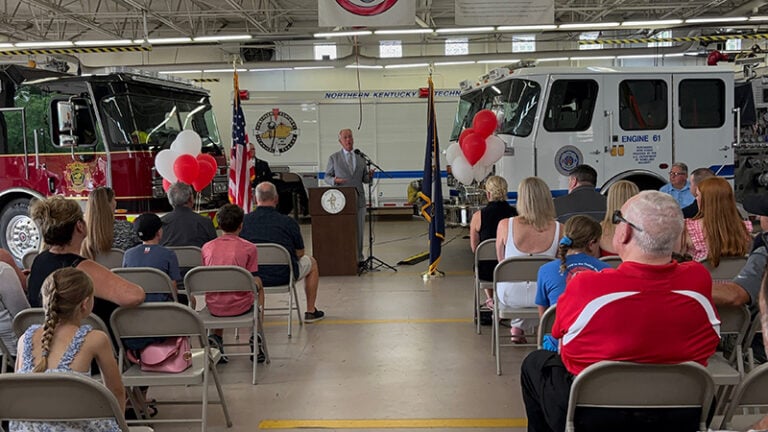As part of National Radon Action Month, the Kentucky Department for Public Health (DPH) within the Cabinet for Health and Family Services urges Kentuckians to learn more about the potential health effects of radon exposure and how to check your home for this potentially dangerous gas.
To better acquaint Kentuckians with the dangers from exposure to radon, a short video clip, has been made available through the Kentucky Radon Coalition and Kentucky Association of Radon Professionals.
According to the U.S. Environmental Protection Agency (EPA), which designates Radon Action Month and supports DPH’s Radon Program, elevated radon levels in the home are a common occurrence. In fact, an estimated 1 in 15 homes in the U.S. have high radon levels.

Similarly, many Kentucky counties contain radon levels in excess of what is considered by the EPA to be safe (the EPA action level for radon is 4 pico curies per liter of air). In Jefferson County, for example, more than 49 percent of homes contain elevated radon levels and more than 55 percent of Fayette County contain elevated radon levels.
“Living in a home with high radon levels can be dangerous for your health. Radon is the second leading cause of lung cancer and it is estimated to cause over 20,000 deaths each year in the U.S.,” said Clay Hardwick, coordinator for Kentucky’s Radon Program.
Radon builds up in homes over time and cannot be seen, tasted, or smelled. The only way to know if radon levels are elevated is to test, which is simple and low cost.
“There is no way to know if your house has high levels of radon unless you get your house tested,” said Rebecca Gillis, director of the Division of Public Health Protection and Safety. “The good news is that radon levels in a home can be dramatically reduced or even eliminated.”
Homeowners can test their homes with a simple kit and if their home has high radon levels, they can fix it. Radon reduction repairs can be done with the help of a licensed radon mitigation contractor.
For more information on radon, radon testing and mitigation or to order a test kit online, visit:
• Kentucky’s Radon Program website,
• CDC’s Radon website,
• University of Kentucky BREATHE’s radon website.
The Kentucky Radon Program focuses education efforts through a coalition of county health departments, universities, and non-profit organizations to increase awareness about radon testing and mitigation in efforts to reduce lung cancer incidence in Kentucky.


















Thanks for giving us ideas about radon gas its really helpful. If you’re worried about the level of radon in your home? It may necessary to consult proper authorities to seek advice or to have an idea about the radon level in your place.
I had no idea that radon can cause lung cancer. My husband and I just purchased our first home together, and we have heard in the past that radon is fairly common in our area. It may be a good idea to have our home tested before completely settling in.
I have seen already in some article according to the newly built home is exempt in fact, it’s actually more likely to be affected since they are built more airtight and don’t let out the gas as well as older homes…